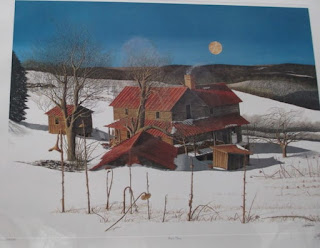Burton, Thomas: Beech Mountain Man (Knoxville, Tennessee, University Of Tennessee Press, 2009)
Thomas G. Burton is a professor emeritus of English at East Tennessee State University and an acknowledged expert in the field of Appalachian Studies and, particularly, in the area of Appalachian Serpent Handling. His books on that subject are two of the best, most accurate, and most respected by the serpent handlers themselves. But this book we are discussing today is not one of those books. While it is subtitled "...The Memoirs Of Ronda Lee Hicks", it is not truly memoir. In my opinion, it is much more accurate to describe it as oral history. The format of the book is primarily direct, dialect transcriptions of audio tapes which Dr. Burton recorded with the subject, Ronda Lee Hicks, in the home of Rosa Hicks, the widow of the great Appalachian story teller Ray Hicks who was also a cousin to Ronda Lee Hicks. The book is transcribed into relatively short sections on particular subjects which Hicks discussed during the taping. Those sections are then combined in several chapters also on common subjects such as work, the military, and drinking. There are short, generally single paragraph introductions written by Thomas Burton at the beginning of each section and chapter. The tapes were transcribed with a solid attempt to be precise and ethical in rendering the unique sub-regional dialect of Appalachian English which Ronda Hicks spoke. However, it is not my impression that the transcription was conducted according to strict linguist rules from any professional association of linguists.
The foreword is written by John Shelton Reed, Professor Emeritus from the University Of North Carolina, and sheds some light on the possible intentions of the author. In his foreword, Reed makes this important statement: "...Hicks is a classic example of a well-known type, the Bad Man. The Bad Man may not be bad in all ways...but this is definitely someone you don't want to cross, or even seriously annoy, because he may respond with abrupt, brutal, and overwhelming violence." It is my belief that Thomas Burton intended to produce a book which would, by first person anecdotes, deliver a studious rendition of the life of one such Bad Man. The Bad Man is just as much an iconic figure in America as the Folk Hero exemplified by Paul Bunyan, Mike Fink, and Johnny Appleseed. Real, living Bad Men have included the recently murdered James "Whitey" Bulger, Clyde Barrow, and Billy The Kid. In my work in the human services professions, I knew numerous men, and a few women, who would have fitted into the rubric of The Bad Man. My favorite client of all time was a man who walked into my office one day, introduced himself, and went on to say "You've probably heard of me. I killed my brother down the road in front of ten witnesses, shot him six times." Then he went on to tell the full story of the murder, why he committed it, and of his time in prison. We went on to have a mutually productive professional relationship for several years. In many ways, he was a great deal like Ronda Lee Hicks.
Ronda Lee Hicks also exhibited, in his recorded stories, many key symptoms of at least two genuine mental health or substance use disorders according to the DSM-V, the book which psychiatric practitioners use to formulate appropriate, empirically rendered diagnoses of those with mental health problems. Ronda Hicks drank heavily most of his adult life and freely admitted and discussed it with Thomas Burton. He also committed numerous acts of violence which were minimally sufficient to require his arrest. He served time in prison on two separate occasions. Yet, he was also a man who could show a capacity to help others, to be considerate, loyal, and giving under certain circumstances. To put it lightly, he was an enigma.
The book is well worth reading for the student of Appalachian Studies, linguists, corrections or mental health professionals, and quite simply those who enjoy knowing about Bad Men. It is not the best of the works I have read by Thomas Burton and, perhaps some day, I will reread his better books and write about those on this blog.


No comments:
Post a Comment